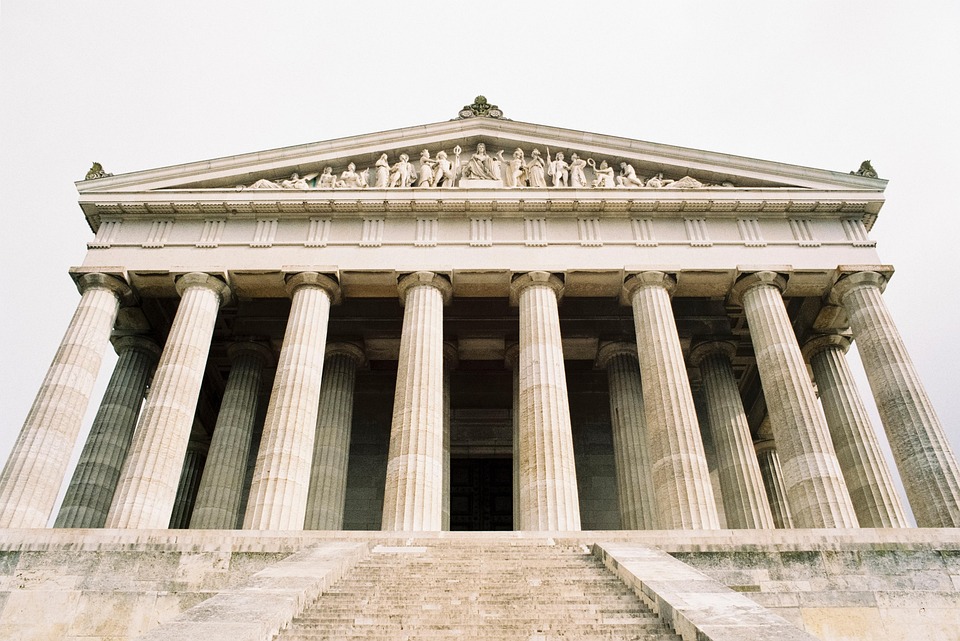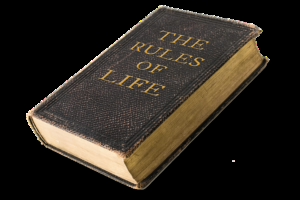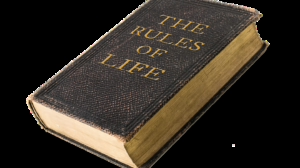The Road to Revolution: Key Events that Defined the Age of Enlightenment
Introduction
The Age of Enlightenment, a pivotal intellectual movement of the 17th and 18th centuries, laid the foundations for modern Western society. Characterized by a profound questioning of traditional authority and an emphasis on reason, science, and individualism, the Enlightenment inspired a series of social, political, and technological revolutions. Key events during this period catalyzed changes that ultimately led to significant upheavals, including the American Revolution and the French Revolution. This article examines the fundamental events that not only defined the Enlightenment but also paved the way toward revolutionary change.
1. The Scientific Revolution (16th – 18th Century)
1.1 Shift in Worldview
The Scientific Revolution marked a significant departure from traditional Aristotelian views of the cosmos. Figures like Copernicus, Galileo, and Newton challenged established notions of science and the natural world. Copernicus’s heliocentric model, published in De revolutionibus orbium coelestium (1543), posited that the Earth revolved around the Sun, contradicting centuries of geocentric thought. Galileo’s use of the telescope provided empirical support for this model, leading to clashes with the Catholic Church, which held firmly to Aristotelian and Ptolemaic theories.
1.2 The Impact of Empiricism
Empiricism gained prominence with philosophers like Francis Bacon and John Locke advocating for observation and experimentation as the bases of knowledge. Bacon’s Novum Organum (1620) emphasized the need for a systematic approach to scientific inquiry, while Locke’s Essay Concerning Human Understanding (1690) argued against innate ideas, promoting the idea that knowledge is derived from sensory experience.
1.3 Challenging Authority
This scientific inquiry not only revolutionized thought but also established a framework for questioning established authorities and doctrines. The quest for knowledge became democratized, allowing broader populations to engage in intellectual discussions, setting the stage for political reform.
2. Philosophical Developments
2.1 Rationalism vs. Empiricism
The Enlightenment was characterized by notable philosophical debates, especially between Rationalists like René Descartes and Empiricists like Locke. Descartes, in his Meditations on First Philosophy (1641), argued for a rational foundation for knowledge (“Cogito, ergo sum” – “I think, therefore I am”). In contrast, Locke’s empiricism emphasized the importance of observation and experience over abstract reasoning.
2.2 The Social Contract
Philosophers such as Thomas Hobbes, John Locke, and Jean-Jacques Rousseau further changed political discourse through their concepts of the social contract. Hobbes’ Leviathan (1651) presented a vision of a strong sovereign to prevent chaos, while Locke posited that governments are legitimate only if they protect individual rights, as articulated in his Two Treatises of Government (1689). Rousseau’s The Social Contract (1762) presented a radical vision of direct democracy and popular sovereignty.
2.3 Enlightenment Ethics
The Ethical philosophies during the Enlightenment, especially those of Immanuel Kant, emphasized the importance of reason and autonomy in moral decision-making. In Groundwork for the Metaphysics of Morals (1785), Kant proposed that moral principles should be universalizable. This shift toward individual moral agency further empowered the notion of personal liberty and self-determination.
3. The Role of Literature and Art
3.1 Satire and Critique
The publication of satirical works, such as Jonathan Swift’s A Modest Proposal (1729) and Voltaire’s writings, brought social issues to light in an entertaining yet critical format. These writers used wit to challenge societal norms and critique governmental and religious institutions, growing public dissent against the status quo.
3.2 The Novel as a Vehicle for Enlightenment Ideas
The novel emerged as a popular literary form that reflected Enlightenment ideas. Works like Daniel Defoe’s Robinson Crusoe (1719) and Samuel Richardson’s Pamela (1740) explored themes of individualism and morality amidst social constraints, allowing readers to engage with philosophical questions in a narrative context.
3.3 Artistic Reflections of Enlightenment Ideals
Art during the Enlightenment also served to communicate its ideals, with movements like Neoclassicism emphasizing reason, order, and symmetry. Artists such as Jacques-Louis David used their works to depict virtuous action and civic duty, encouraging the populace to aspire toward the values of the Enlightenment.
4. Economic Changes and the Rise of Capitalism
4.1 Mercantilism to Free Trade
The transition from mercantilism to more liberal economic theories was also significant. Adam Smith’s The Wealth of Nations (1776) critiqued mercantilism and proposed free market principles based on competition and individual self-interest, laying the groundwork for modern economics and capitalism.
4.2 The Industrial Revolution
Emerging from Enlightenment ideals, the Industrial Revolution heralded a new age of technological progress and economic expansion. Inventions like the steam engine transformed manufacturing processes, while urbanization drew people into cities, altering social structures and leading to increased demands for political reform.
5. Political Upheaval
5.1 The American Revolution (1775-1783)
The American Revolution exemplified Enlightenment thought in action. The war was fueled by Enlightenment ideals regarding self-governance and human rights, articulated in foundational documents like the Declaration of Independence (1776). Influenced by Locke’s theories, American colonists fought against British tyranny, ultimately establishing a republic based on Enlightenment principles.
5.2 The French Revolution (1789-1799)
The French Revolution built upon the Enlightenment’s philosophical underpinnings but deviated toward radicalism. The Declaration of the Rights of Man and of the Citizen in 1789 reflected core Enlightenment ideals such as liberty, equality, and fraternity. However, the revolution also led to violent excesses, demonstrating the potential for Enlightenment principles to be interpreted in extreme ways.
5.3 The Haitian Revolution (1791-1804)
Inspired by Enlightenment ideas of freedom and equality, the Haitian Revolution constituted the first successful slave revolt that led to the establishment of a free state. Figures like Toussaint L’Ouverture emerged, showcasing the universal applicability of Enlightenment principles across different contexts.
6. Legacy of the Enlightenment
6.1 The Modern State and Constitutionalism
The legacy of the Enlightenment can be seen in the proliferation of constitutional governments and the framing of modern democracies. Constitutional documents across Europe and the Americas drew heavily on Enlightenment principles, outlining the rights of individuals and the responsibilities of the state.
6.2 Ongoing Struggles for Rights and Freedom
In the wake of the Enlightenment, numerous social and political movements arose advocating for civil rights and liberties. The ideals of gender equality, abolition, and workers’ rights all found inspiration in the Enlightenment’s call for individual rights and social justice.
6.3 Critiques and Reassessments
As modern society evolved, critiques of Enlightenment thought emerged, questioning its universality and highlighting exclusions based on race, gender, and class. Philosophers such as Hegel and Marx would later provide profound critiques of Enlightenment rationalism, arguing for the importance of historical and social contexts.
Conclusion
The Age of Enlightenment profoundly transformed intellectual, political, and social landscapes, setting the stage for modernity. The key events and ideas of this era fostered revolutions that reshaped governance, society, and individual rights. The tension between reason and empiricism, along with the development of democratic ideals, fueled movements that continue to resonate today. Understanding this revolutionary period is essential for grasping the complexities of contemporary politics and societal structures, revealing the enduring impact of Enlightenment thought.
Modern Footnotes
- Copernicus, Nicolaus. De revolutionibus orbium coelestium. 1543.
- Bacon, Francis. Novum Organum. 1620.
- Locke, John. Essay Concerning Human Understanding. 1690.
- Hobbes, Thomas. Leviathan. 1651.
- Rousseau, Jean-Jacques. The Social Contract. 1762.
- Swift, Jonathan. A Modest Proposal. 1729.
- Voltaire. Various works.
- Smith, Adam. The Wealth of Nations. 1776.
- Declaration of Independence. 1776.
- Declaration of the Rights of Man and of the Citizen. 1789.
This article is a comprehensive overview of how the events of the Enlightenment life led to revolutions that reshaped the fabric of modern society. By weaving together various intellectual developments, artistic movements, and socio-political changes, we can see how the Age of Enlightenment was not merely a historical period but a transformative force that shaped the world we inhabit today.


























Add Comment